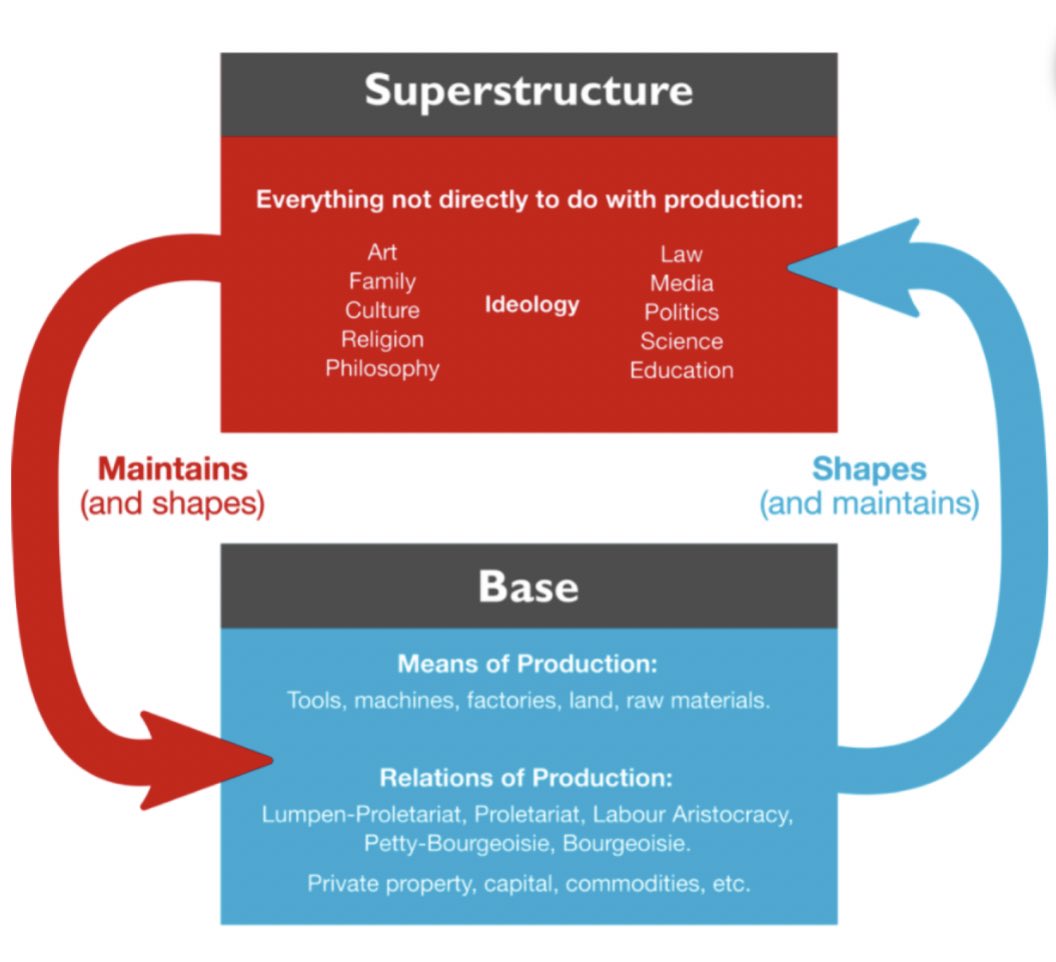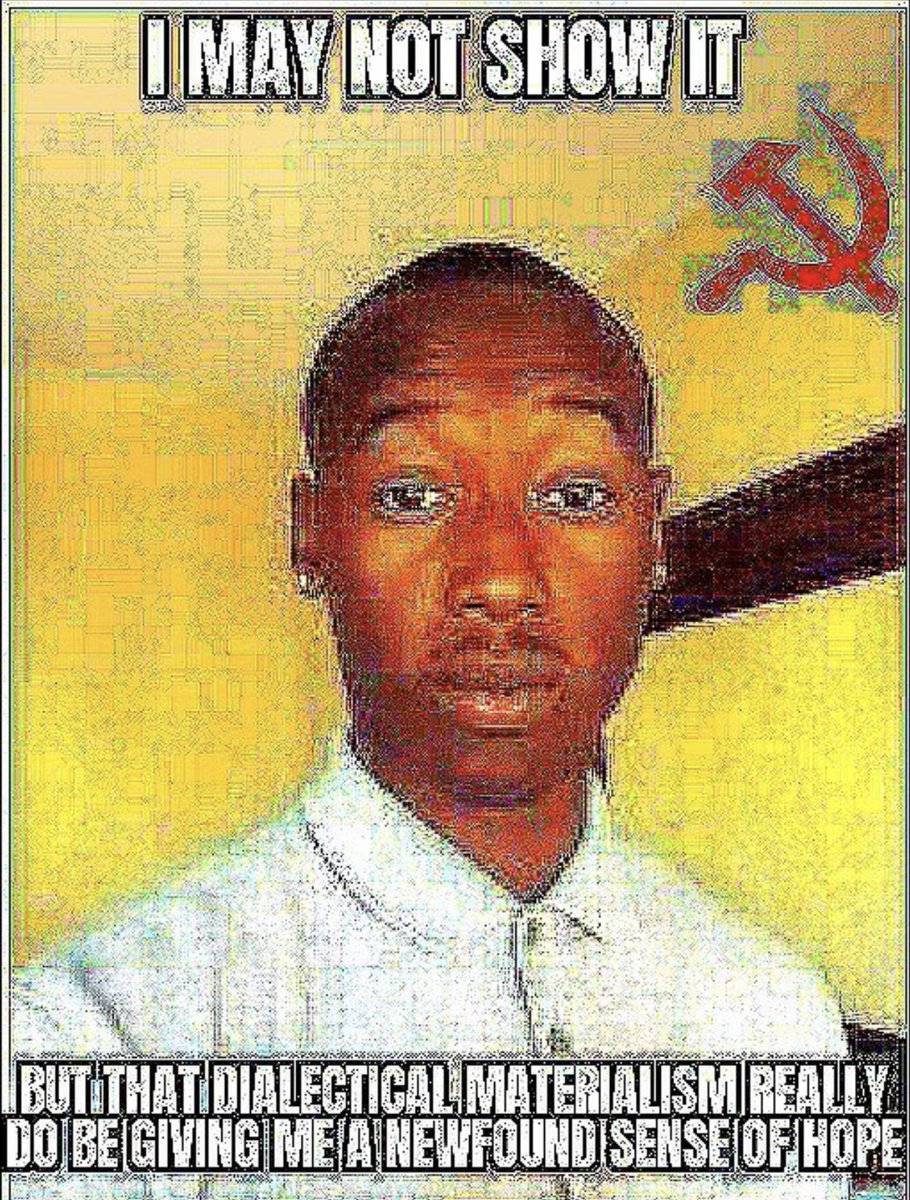let& #39;s talk about dialectics from a marxist perspective [thread https://abs.twimg.com/emoji/v2/... draggable="false" alt="🧵" title="Thread" aria-label="Emoji: Thread">]
https://abs.twimg.com/emoji/v2/... draggable="false" alt="🧵" title="Thread" aria-label="Emoji: Thread">]
dialectic/dialectics comes from the greek: διαλεκτική, dialektikḗ; related to dialogue. marx and engels referred to hegel as the philosopher who formulated dialectics. (1/16)
understanding dialectics in a marxist and hegelian view can be summarized as looking at one picture, but through a different colored lens. (2/16)
“within hegelianism, the word dialectic has the specialized meaning of a contradiction between ideas that serves as the determining factor in their relationship. dialectic comprises three stages of development: + (3/16)
first, the thesis, a statement of an idea; second, the antithesis, a reaction that contradicts or negates the thesis; and third, the synthesis, a statement through which the differences between the two points are resolved. + (4/16)
dialectical materialism, a theory or set of theories produced mainly by marx and engels, adapted the hegelian dialectic into arguments regarding traditional materialism.” (5/16)
dialectics and evolution go hand in hand. in short, hegel believed that the ideas of men moved history. what was marx’s lens? historical materialism. (6/16)
"my dialectic method," says marx, "is not only different from the hegelian, but is its direct opposite. to hegel, ... the process of thinking which, under the name of & #39;the Idea,& #39; he even transforms into an independent subject, is the demiurgos (creator) of the real world, +(7/16)
and the real world is only the external, phenomenal form of & #39;the Idea.& #39; with me, on the contrary, the ideal is nothing else than the material world reflected by the human mind and translated into forms of thought." (8/16)
-marx, afterword to the second german edition of volume I of capital. historical materialism states that history is moved by material conditions (in terms of class, labor, and socioeconomic interactions.) (9/16)
https://www.marxists.org/archive/marx/works/1880/soc-utop/index.htm
"the">https://www.marxists.org/archive/m... materialist conception of history starts from the proposition that the production of the means to support human life and, next to production, the exchange of things produced, is the basis of all social structure; + (10/16)
"the">https://www.marxists.org/archive/m... materialist conception of history starts from the proposition that the production of the means to support human life and, next to production, the exchange of things produced, is the basis of all social structure; + (10/16)
that in every society that has appeared in history, the manner in which wealth is distributed and society divided into classes or orders is dependent upon what is produced, how it is produced, and how the products are exchanged. + (11/16)
from this point of view, the final causes of all social changes and political revolutions are to be sought, not in men& #39;s brains, not in men& #39;s better insights into eternal truth and justice, but in changes in the modes of production and exchange.” (12/16)
marx asserted that to understand the context of ideological concepts (like politics and culture) one must understand the material realities of the economy first (like the organization of labor and resources). (13/16)
essentially, the economy was the base of everything else (the superstructure).marx viewed historical development in terms of modes of production (stages of history like primitive communism, feudalism, and capitalism) and economic classes. (14/16)
modes of production are defined by a combination of the forces of production and the relations of production. (15/16)
in conclusion, historical materialism is a way to understand how society progresses socially and economically. it can be argued that communism is an unsynthesizable conclusion to economic history. (16/16)

 Read on Twitter
Read on Twitter



